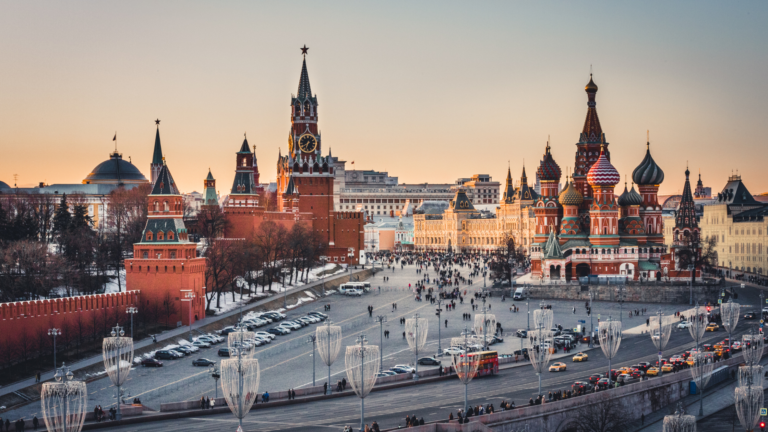ITALY STUDY VISA-2024: Guide to world class education
INTRODUCTION Hello there! Are you dreaming of studying in Italy? If so, you’re in for an incredible experience! Italy is not just famous for its delicious pizza and rich history; it’s also home to some of the world’s best universities. In this guide, we will walk you through everything you need to know about obtaining…
INTRODUCTION
Hello there! Are you dreaming of studying in Italy? If so, you’re in for an incredible experience! Italy is not just famous for its delicious pizza and rich history; it’s also home to some of the world’s best universities. In this guide, we will walk you through everything you need to know about obtaining your Italy study visa in 2024. Whether you’re an Indian passport holder or just curious about studying abroad, this blog is here to help you guide on Italy Study Visa.
Why Choose Italy for Your Studies?
Before we dive into the visa details, let’s talk about why studying in Italy is a fantastic choice:
1. World-Class Education
Italy has a long tradition of academic excellence. Universities like the University of Bologna, Sapienza University of Rome, and Politecnico di Milano are renowned worldwide. You’ll find a wide range of programs in English and Italian.
2. Cultural Richness
Italy is steeped in history and culture. From ancient ruins to stunning art galleries, every corner of Italy offers something unique. Studying here means immersing yourself in a vibrant culture.
3. Travel Opportunities
Italy is centrally located in Europe, making it easy to travel to other countries. You can explore beautiful cities like Paris, Barcelona, and Vienna during your breaks.
4. Delicious Cuisine
Italian food is loved worldwide! While studying here, you’ll get to enjoy authentic pasta, pizza, gelato, and more.
5. Diverse Student Community
Italy attracts students from all over the world. You’ll have the chance to meet people from different cultures and backgrounds, making lifelong friends along the way.
Italy Study Visa
If you want to study in Italy for more than three months, you will need a student visa. This visa allows you to enter Italy and stay while you pursue your studies.
Types of Student Visas
There are two main types of student visas for Italy:
- Visa Type C: This is a short-stay visa for courses lasting up to 90 days. It’s suitable for summer schools or short programs.
- Visa Type D: This is a long-stay visa for academic programs that last longer than 90 days. Most international students will need this type of visa for degree courses.
Who Needs a Student Visa?
If you hold an Indian passport and plan to study in Italy for more than three months, you will need a student visa. However, if you are from the European Union (EU) or certain other countries like Switzerland or Norway, you do not need a visa.
How to Apply for an Italy Study Visa?
Now that you know what type of visa you need, let’s go through the application process step by step:
Step 1: Get Accepted by an Italian University
The first thing you need is an acceptance letter from an Italian university. Make sure to apply well in advance so that you have enough time to complete your visa application.
Step 2: Prepare Your Documents
Gather all the necessary documents required for your visa application. Here’s a checklist:
- Visa Application Form: Fill out the application form accurately.
- Passport: Your passport should be valid for at least three months beyond your planned stay.
- Passport-sized Photos: Usually two recent photos are required.
- University Acceptance Letter: Proof that you have been accepted into an Italian institution.
- Proof of Accommodation: Documents showing where you will live while studying.
- Financial Evidence: Bank statements showing that you can support yourself financially (about €6,000 per year).
- Health Insurance: Coverage of at least €30,000 for medical emergencies.
- Previous Education Certificates: Transcripts or diplomas from your previous studies.
- Police Clearance Certificate: A document showing that you have no criminal record.
Step 3: Book Your Appointment
Contact your nearest Italian embassy or consulate to schedule an appointment for your visa interview. It’s best to do this as early as possible since slots can fill up quickly.
Step 4: Attend Your Visa Interview
On the day of your appointment, make sure to bring all your documents with you. During the interview, be prepared to answer questions about your study plans and why you chose Italy.
Step 5: Pay the Visa Fee
The fee for a student visa is usually around €50 (approximately ₹4,500). Be sure to check with your local embassy for any additional fees related to processing or services.
Step 6: Wait for Processing
After submitting your application and attending the interview, all that’s left is waiting! The processing time typically takes about 2 to 3 weeks but can extend up to 60 days during busy seasons. It’s wise to apply at least three months before your intended travel date.
Financial Requirements
One important aspect of applying for a student visa is proving that you can support yourself financially while studying in Italy. The minimum amount required is approximately €460 per month (around ₹41,000), totaling about €6,000 (approximately ₹540,000) per year. Make sure your bank statements clearly show these funds.
Working While Studying
As an international student in Italy, you are allowed to work part-time while studying! You can work up to 20 hours per week during the academic year and full-time during holidays. This can help cover living expenses and give you valuable work experience.
Benefits of Studying in Italy
Studying in Italy comes with numerous benefits beyond just academics:
- Cultural Exposure: Experience rich traditions and festivals throughout the year.
- Language Skills: Improve your Italian language skills by immersing yourself in daily life.
- Networking Opportunities: Build connections with professors and fellow students that may help in your career later.
- Travel Experiences: Take advantage of weekends and holidays to explore stunning cities like Florence, Venice, and Rome.
- Quality Education: Gain access to high-quality education with practical learning experiences.
Cost of Living in Italy
While tuition fees vary depending on the university and program, living costs should also be considered when planning your budget:
- Accommodation: Rent can range from €250 to €600 per month depending on location.
- Food: Expect to spend around €200–€300 monthly on groceries and dining out.
- Transportation: Public transport is affordable; monthly passes cost around €35–€50.
- Miscellaneous Expenses: Budget around €100–€150 for entertainment and personal expenses.
Overall, living costs could range from €800–€1,200 per month depending on lifestyle choices.
Currency Used in Italy
Italy uses the Euro (€) as its currency. Familiarize yourself with basic currency conversions so that you can manage your finances effectively while studying abroad.
Life as an International Student in Italy
Living in Italy will be an adventure filled with new experiences! Here are some tips on how to adapt:
- Learn Basic Italian Phrases: Knowing simple phrases can help you interact with locals and make daily life easier.
- Explore Local Culture: Attend local events, visit museums, and try traditional foods.
- Make Friends: Join student groups or clubs at your university to meet new people.
- Stay Organized: Keep track of important dates like exams and assignment deadlines.
- Enjoy Your Time: Remember that studying abroad is not just about academics; it’s also about making memories!
Conclusion: Italy Study Visa
Studying in Italy can be one of the most rewarding experiences of your life! With its rich culture, excellent education system, and beautiful landscapes, it offers everything a student could wish for.
As an Indian passport holder looking forward to obtaining an Italy study visa in 2024, make sure you’re well-prepared with all necessary documents and start early! Embrace this opportunity not just as a chance to earn a degree but also as a way to grow personally and professionally.
So pack your bags and get ready for an unforgettable journey! Ciao e buona fortuna (Goodbye and good luck)!
15 Frequently Asked Questions (FAQs) About Italy Student Visa
1. How long does the Italy student visa application process take?
The typical processing time is 2-3 weeks, but it can extend up to 60 days during peak seasons. Always apply at least three months before your intended travel date to avoid last-minute complications.
2. What is the minimum financial requirement for an Italy student visa?
You must demonstrate a minimum of €6,079.45 for the entire academic year, which breaks down to approximately €460.28 per month. This proves you can support yourself during your studies. Check your requirements before applying.
3. Can I work while studying in Italy?
Yes! International students can work up to 20 hours per week during the academic year. During holidays, you can work full-time. However, you’ll need to obtain the necessary work permits. Check the requirements before applying.
4. Do I need to know Italian to study in Italy?
Not necessarily. Many universities offer programs in English. However, learning basic Italian will help you navigate daily life and integrate better into the local culture.
5. What health insurance do I need for the student visa?
You must have health insurance covering at least €30,000 for medical emergencies. Many universities offer health insurance plans specifically for international students. Check the details before applying.
6. How much does the student visa cost?
The visa fee is typically around €50 (approximately ₹4,500). Additional processing fees may apply, so check with the local Italian embassy. Check the details before applying.
7. Can I bring my family with me on a student visa?
Family members can apply for a family reunion visa, but they must prove financial stability and have a valid reason to accompany you.
8. What happens if my visa application is rejected?
If rejected, you’ll receive a detailed explanation. You can address the issues and reapply or appeal the decision within 60 days. Check the details before applying.
9. Do I need to show proof of accommodation?
Yes, you must provide documentation proving where you’ll live in Italy. This can be a university dormitory confirmation or a rental agreement.
10. How long is the student visa valid?
The long-stay student visa (Type D) is typically valid for one year and can be renewed as long as you maintain your student status. Check the details before applying.
11. What documents are absolutely necessary for the visa application?
Key documents include:
- Valid passport
- University acceptance letter
- Passport-sized photographs
- Proof of financial means
- Health insurance
- Accommodation proof
- Police clearance certificate
12. Can I travel to other Schengen countries with an Italian student visa?
Yes! The Italian student visa allows you to travel to other Schengen countries for short periods during your stay.
13. What is the age limit for a student visa in Italy?
There’s no strict upper age limit for student visas. As long as you’re accepted by an educational institution, you can apply.
14. Do I need to show language proficiency?
Requirements vary by university. Some require Italian or English language proficiency certificates like IELTS or TOEFL.
15. How soon after arriving in Italy must I apply for a residence permit?
You must apply for a residence permit (permesso di soggiorno) within 8 days of arriving in Italy.
Pro Tips for Students
- Start your visa application process at least 3-4 months before your planned departure
- Double-check all documents for accuracy
- Learn basic Italian phrases
- Prepare for cultural differences
- Keep copies of all important documents
- Have a financial buffer beyond the minimum requirement
- Connect with current students or alumni from your university
Final Advice
Studying in Italy is more than just an educational journey. It’s a life-changing experience that will broaden your horizons, expose you to a rich cultural heritage, and provide opportunities for personal and professional growth.
Remember, preparation is key. Stay organized, be patient with the process, and keep a positive attitude. Your dream of studying in Italy is just a few steps away!
Buona fortuna! (Good luck!)






